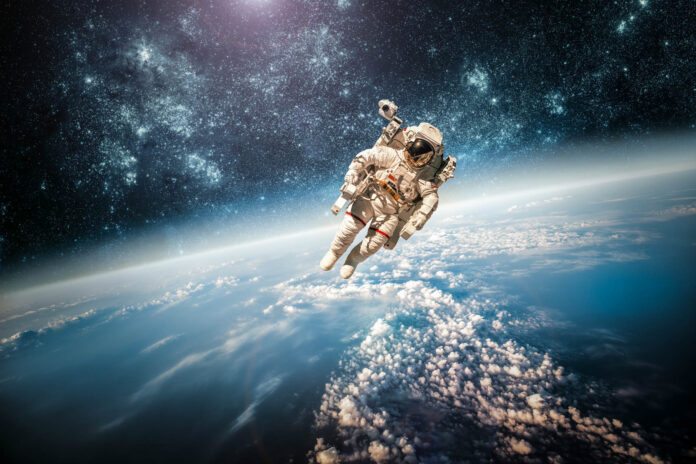The history of space exploration stands as a testament to humanity’s unquenchable thirst for knowledge and its indomitable spirit of curiosity and discovery. From the earliest observations of the night sky by ancient civilizations to the modern-day missions to distant planets and beyond, space exploration has been a defining element of our collective human journey. It has not only expanded our understanding of the universe but has also profoundly shaped the course of scientific progress, technological innovation, and the human spirit’s capacity to dream beyond earthly boundaries.
At its core, the quest for space exploration represents a timeless aspiration—a journey that transcends generations, nationalities, and political ideologies. It embodies the innate human desire to gaze at the stars, to wonder about the cosmos, and to reach out to the farthest reaches of the universe in search of answers to age-old questions. As we embark on this exploration of the impact of space exploration on humanity, we delve into a story that spans millennia, a story that continues to unfold and captivate our collective imagination.
I. Expanding Scientific Knowledge
One of the primary objectives of space exploration has been to expand our scientific knowledge about the cosmos. Through the use of telescopes, spacecraft, and space-based observatories, scientists have made numerous groundbreaking discoveries that have deepened our understanding of the universe.
- Understanding Celestial Bodies Space missions like the Hubble Space Telescope have provided unprecedented views of distant galaxies, stars, and planets. These observations have allowed astronomers to study the formation and evolution of celestial bodies, uncover the mysteries of black holes, and investigate the properties of exoplanets in distant solar systems. The Hubble telescope, for instance, has captured stunning images of distant galaxies, allowing scientists to peer back in time and unravel the cosmic tapestry.
- Solar System Exploration Robotic spacecraft sent to explore our solar system have provided valuable insights into planetary geology, atmospheres, and the potential for extraterrestrial life. Missions to Mars, such as the Mars rovers and the Mars Science Laboratory, have discovered evidence of water on the planet’s surface and have fueled speculation about the possibility of past or present microbial life. These missions have expanded our understanding of planetary processes and the potential habitability of other worlds.
- Cosmic Origins Space exploration has also contributed to our understanding of the origin of the universe itself. Observations of cosmic microwave background radiation, like those made by the Planck satellite, have shed light on the early moments of the universe, confirming the Big Bang theory and providing crucial data for cosmology. These discoveries have fundamentally shaped our understanding of the cosmos and its evolution.
II. Technological Advancements
Space exploration has driven innovation and technological advancements in various fields, with many of these innovations having practical applications beyond space missions.
- Materials Science The development of materials that can withstand the extreme conditions of space, such as high radiation and temperature fluctuations, has led to innovations in materials science. These materials have found applications in various industries, including aerospace, healthcare, and manufacturing. For example, the lightweight, heat-resistant materials developed for spacecraft have been adapted for use in aeronautics, making aircraft more fuel-efficient and durable.
- Miniaturization and Electronics The need to reduce the size and weight of spacecraft has driven advancements in miniaturization and electronics. This has led to the development of smaller, more powerful, and energy-efficient electronic devices, which are now ubiquitous in everyday life, from smartphones to medical devices. The technology used in space exploration has revolutionized the electronics industry and improved the quality of life for people worldwide.
- Earth Observation and Communication The development of satellite technology for space missions has revolutionized Earth observation and global communication. Satellites in Earth’s orbit provide vital data for weather forecasting, disaster management, and telecommunications, improving the quality of life for people around the world. Remote sensing technology, originally developed for space applications, is now used for agriculture, environmental monitoring, and urban planning.
III. Inspiration and Human Spirit
Space exploration has not only expanded our knowledge and technological capabilities but has also inspired generations of people to dream, innovate, and strive for greatness.
- The Human Spirit The Apollo Moon landings, in particular, captured the imagination of the world. These missions demonstrated the indomitable human spirit, the ability to overcome immense challenges, and the pursuit of the seemingly impossible. They serve as a symbol of what humanity can achieve when driven by curiosity and determination. The iconic image of an astronaut standing on the lunar surface is a testament to human exploration and achievement.
- STEM Education Space exploration has played a significant role in promoting science, technology, engineering, and mathematics (STEM) education. The excitement generated by space missions has motivated countless students to pursue careers in STEM fields, ultimately contributing to the advancement of human knowledge and technology. Educational programs and initiatives inspired by space exploration continue to shape the future of science and innovation.
- International Cooperation Space exploration has often transcended political boundaries, leading to international collaboration on missions and projects. The International Space Station (ISS), for example, is a symbol of global cooperation in space exploration, fostering diplomatic relations and promoting peaceful uses of outer space. The ISS serves as a testament to what can be achieved when nations work together for the common good.
To pen down the impact of space exploration on humanity is profound and multifaceted. It has expanded our scientific knowledge, driven technological advancements, and inspired the human spirit. From our understanding of distant galaxies to the development of everyday technologies, space exploration has left an indelible mark on our civilization.
As we look to the future, space exploration continues to hold promise and challenges. Missions to Mars, the search for extraterrestrial life, and the potential for interstellar exploration beckon us to push the boundaries of human exploration further. The enduring legacy of space exploration reminds us that as we venture into the cosmos, we not only discover the secrets of the universe but also discover more about ourselves and our limitless potential. In the words of Carl Sagan, “Exploration knows no bounds, and the journey into space represents a journey into the unknown – a journey that has the power to shape our future and define the essence of humanity.” The impact of space exploration serves as a testament to the enduring spirit of discovery that drives humanity forward.
By: Samarth Kharbanda
Write and Win: Participate in Creative writing Contest & International Essay Contest and win fabulous prizes.















